I'm a Titanic fan: fuck people who judge your tastes
Megalopolis, Joker: Folie à Deux and Emmanuelle are all good films
Toxic masculinity and growing up in Australia
I aspire to be in touch with my own opinions in life.
I’ve made a lifelong practice of this since I grew up in a narrow-minded, socially conservative environment — the kind of setting where it was normal for authority figures to impose their value judgements onto others.
Defending my own tastes was a crucial struggle for me in order to maintain my individuality.
I couldn’t always defend my tastes to others. Australian toxic masculinity made taboos of the things I enjoyed, like Nintendo games, The Sound of Music, and Marilyn Manson. These were all things that made the culture fear that a "good" white male like me could become gay, artistic, or rebellious.
Even cannabis was looked down upon by my peers — rugby jocks who thought smoking weed was for hippies. Hippies were bad, apparently, because they didn’t contribute to the economy as much as wealthy families like theirs, who cheat taxes and hoard wealth for themselves.
Imagine what growing up in an environment felt like for a person like me. When I was young, I couldn’t defend my tastes to others, so I did my best to defend them to myself: by being my own person, with my own mind.
I am glad I made this decision early on in my life because the kind of Australian machismo I was expected to live up to is not a recipe for life happiness.
But it was hard. The social pressure to conform in Australia was absolute, and I had internalised a fair share of it. It took me until my early teens to deprogram out of it out of myself that I was able to "came out" as someone who wouldn’t go along with crowd opinions just to avoid being called a faggot.
Homophobia was ubiquitous in the environment I grew up in. I was often on the receiving end of it, despite being straight, because I was never interested in pretending to be the hyper-masculine Australian male stereotype.
So, when I saw Titanic (1997) in the cinema, at 11 years old, I was comfortable to cry. I was also happy to be the only guy I knew who could to admit that I liked Titanic not just for Kate Winslet’s breasts or the guy who falls onto the propeller, but for the real substance of the film: its touching melodrama and haunting score.
And almost 30 years later nothing has changed. Titanic remains a great film, and I sometimes cry watching it. If you want to make fun of me for liking it, go ahead. Plenty of people have. You’ll be in the company of homophobic Australian teenagers from the 1990s. Would you also like to tell me an off-colour racist joke?
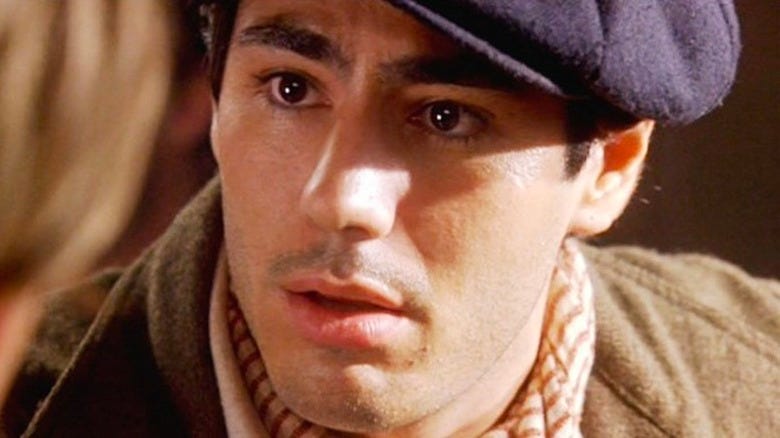
If I come across as prickly here, it’s because — when I started defending my tastes to others — a touch of militancy went a long way against people who tried to frame you in some misogynistic paradigm as weak. Seeing them have their arses handed to them by an outraged Titanic fan (me) was a sweet pleasure.
What I learned about protecting my own tastes
Since I rarely received validation for my individuality, I developed a whole set of behaviours designed to cultivate my own tastes — and to block out the negatory influences of others.
As a cinema-lover, I go into films as blind as possible — no synopses, no trailers, and certainly no reviews.
The larger the lack of prior context, the more there is to discover. I don’t even like to know what genre a film is supposed to be, since a well-made film will create suspense even in the first moments — provided you don’t already know in advance what it’s doing.
After watching a film, I wait before seeing what others have thought of it. It’s important to have time to digest a film. Sometimes this takes a few minutes, other times several days.
If it’s a film that has stuck with me and I feel confident in my own opinion of it, I enjoy finding out what others have thought. I ask people I know: friends, colleagues, neighbours, students, and clients.

I’m interested in their responses and don’t judge them for having a different view from mine. Since I’m privileged to know people from all backgrounds — including those in cinema and cinema-adjacent industries — it’s eye-opening to see the variety of experiences viewers can have.
It’s especially interesting to do this in France, where people are capable of making the distinction between “that suited my tastes” and “that was (not) well-made.” Being able to speak on both points allows for nuanced opinions.
I also like to read discussions in film communities online. The "official discussion" threads on r/movies are always a useful barometer of general sentiment among a normative demographic.
I rarely read film reviews. Film criticism in the English-speaking world has become about sweeping judgements of value. Films are reviewed as products, and I find that gross. The idea that a score can be given to a film based on its objective value makes me feel physically uneasy. (As I typed that sentence, my gut, literally, felt unsettled.)

Anyway, this is all a long way of introducing some thoughts I wanted to share on three films I’ve seen recently:
Emmanuelle
I was captivated from start to finish. There are many sex scenes, and all of them are uncomfortable to watch (to varying degrees). This is not really a film about female sexual liberation; it’s about a woman with a very complicated relationship to her own sexuality. She would like to take pleasure from sex, but rarely does.

Emmanuelle’s behaviours have the form of pleasure, but rarely the substance — a paradigm echoed in the way the film’s sumptuous location (a five-star hotel in Hong Kong) is presented: glorious, yet empty and foreign at the same time.
“Tolerated but not allowed” is a recurring motif in the film, and it perfectly encapsulates Emmanuelle’s attitude towards intimacy. The most comfortable sex scenes in the movie are the ones in which she is alone with herself.
The emotional impact of the film rests on the excellent performances of its actors, with Noémie Merlant’s portrayal leaving a lasting impression. In every scene, there are layers of psychodrama playing out on Emmanuelle’s face.
The film’s ambiguous presentation leaves much for the viewer to interpret. Emmanuelle is a film that is content to raise more questions than it answers. Considering how seldom women’s sexuality is explored on screen, it’s refreshing to see a film that invites viewers to reflect on the interior erotic life of a female character.
Joker: Folie à Deux
This is another captivating watch. It’s an intense character drama that delves into childhood trauma, obsession, and cruelty. The plot follows a love story whose trajectory is shaped by the internal damage of its characters.
The characters are deeply written, and their portrayals by Joaquin Phoenix and Lady Gaga are nuanced. It’s painful and heartbreaking to watch. The drama is far more intense than in its predecessor, Joker (2019). Joaquin Phoenix’s performance being rightly acclaimed, however, Lady Gaga brings a psycho girlfriend energy that electrifies the drama. The chemistry between the two leads is palpable.
The film’s musical numbers are essential to its storytelling. The songs communicate the damaged interior lives of the characters, revealing insights that these characters would be incapable of expressing through dialogue. They also provide a welcome change in tone from what is otherwise an extremely bleak story.
And yes, the singing is rough. This was an intentional creative choice (see video below), and it works well. The paradox of Arthur Fleck’s character is his child-like sensitivity, and his tenderness comes through in an immediate and raw fashion.
The musical numbers aren’t meant to be glamorous — they’re meant to be touching.
This is Todd Phillips’ vision of Joker, and it’s a pleasure to see a major commercial Hollywood film pull off such bold creative choices.
In terms of artistic craft, Joker: Folie à Deux is extremely well-made. It has a beautiful cinematic language. The sound design is excellent, with the mixing making particularly good use surround-sound channels to create an agoraphobic ambiance. My only reservation about the film’s technical merits is that it could’ve been edited to a tighter pace, but I can appreciate the extra time that was allowed for the actor’s performances to breathe.
I can understand why most viewers aren’t responding well to this film. Enjoying Joker: Folie à Deux requires viewers to be comfortable with rather specific criteria.
You need to be comfortable with having musical numbers in the first place. You need to be comfortable with their unpolished presentation. And you need to be comfortable with the tonal clash that comes with their appearance.
I’m a fan of Bollywood cinema, so nothing felt out of place here.
Megalopolis
At the same time that Joker: Folie à Deux is in cinemas, what a treat it is to have another bold cinematic vision brought to life with a top-tier production.
Megalopolis has a chaotic insanity to it that is part of its artistic concept.
One aspect of this concept comes from portraying modern-day New York with the trappings of the Roman Empire in its most decadent days.
This allows the film to present some interesting social commentary on wealth and excess. The vulgarity of the super-rich is well parodied throughout, particularly in the character played by Jon Voight and his dysfunctional children.
Another theme explored through this element of the film’s story is the role of government in civil life. What if the institutions of American government were as fragile and corruptible as those of the Roman Empire?
What if a single person could sweep into power over all branches of government and the military, as Julius Caesar did?
Reflecting on questions like this offers a useful perspective on our contemporary struggles with political corruption. What’s going on in the modern world is unacceptable, but we’ve come a long way as humans, and it’s nice to be reminded of that.
The other conceptual thread of Megalopolis is a sci-fi storyline in which Adam Driver’s character is central. He plays a genius inventor who has developed a technology that could potentially save humanity from its own problems.
The problem he faces is that he needs the support of establishment political figures to bring this technology to the world. These powerful interests oppose him, either because they are more concerned with maintaining their own power or because of the personal grudges that are part and parcel of the nepotistic society of "New Rome."
Does this sound like interesting material for a plot to you?
I think it is, and better still, Megalopolis delivers a thoughtful exploration of its premise. The sci-fi storyline brings an emotional core to the film that keeps it moving towards an engaging pay-off.
And the film is very funny, too. It’s a farce, and doesn’t shy away from embracing the camp. No spoilers here, but I just have to say: the costumes of Shia LeBoeuf’s character.
Aesthetically, the film’s visual language has a plasticky, artificial quality to it — think bad CGI. I’m not sure whether this was intentional, but I’m quite happy with the results. Bad cartoonish aesthetics are a good fit for the world of this film.
I have talked to many people about this film. Most of them hated it. However, the people I know who work in cinema and cinema-adjacent jobs have all been very complimentary.
Megalopolis has been received as a catastrophe, but I am certain it will be reappraised in future years.
Conclusion: be proud of your tastes and kind to others
So voilà, my thoughts on some films that I feel are underappreciated.
I offer these reflections not to tell you how you should feel about these films. Whatever you felt, I respect that, and I’d be interested to hear your thoughts in the comments.
I wanted to share my reflections because I dislike how judgemental we (collectively) can be towards films that fall afoul of mainstream opinion.
Judgemental backlash like we’ve seen for these films is bad for creativity, as the inevitable result is that film production becomes more conservative.
But more importantly, I want to normalise the idea that you (yes, YOU) are entitled to your own tastes, regardless of what others think. Having tastes in life that others consider “bad” can lead a person to feel a lot of shame about themselves.
it’s taken me a long time to be OK to say things like “I cry when I watch Titanic,” and I’m fairly thick-skinned. I’ve known people for whom it’s taken a lifetime to feel comfortable with their tastes: not just their guilty pleasures, but their normal ones too.
Why, in 2024, do people need to feel bad about themselves for enjoying a movie?
I’m calling for people to recognise that their tastes are valid and to know that you can be proud of what you like.
And for those (like me) who share their opinions, try to be kind in how you talk about things like films or music. Just because you didn’t like something doesn’t mean the person you’re speaking to agrees with you.
Be respectful of others' right to their tastes.
And if you haven’t watched Titanic recently, do so. It’s fucking awesome.
Salut,
If you are enjoying my content, please consider leaving a comment. I’d love to know what you think — and others will too.
And your feedback helps. Back when I used to make money from my writing, I had editors. Being open to their advice helped me become a better writer, and I’m open to yours.
If you prefer to just read my work and keep your peace, that’s totally fine too.
Sending you love, as always,
Robert





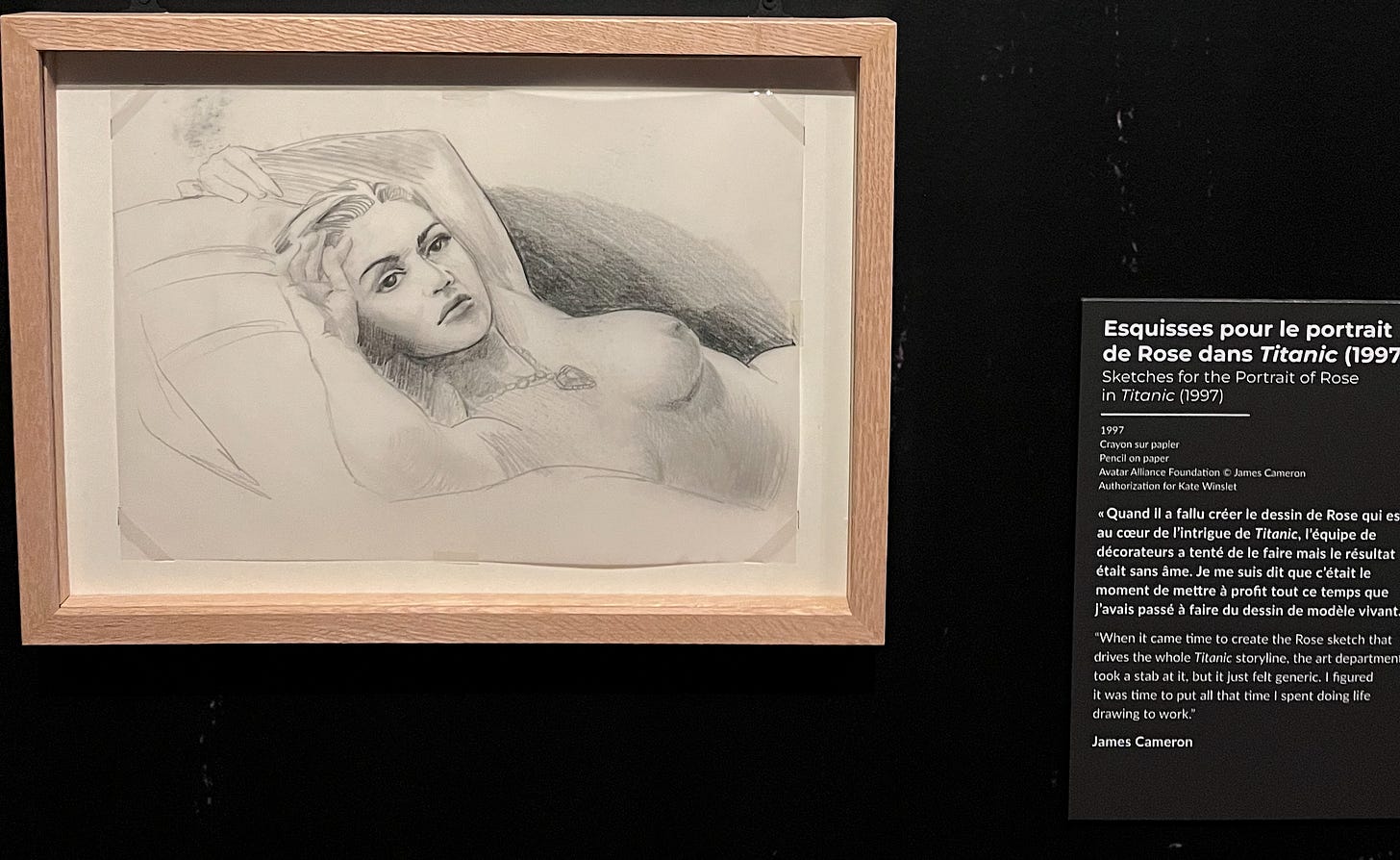

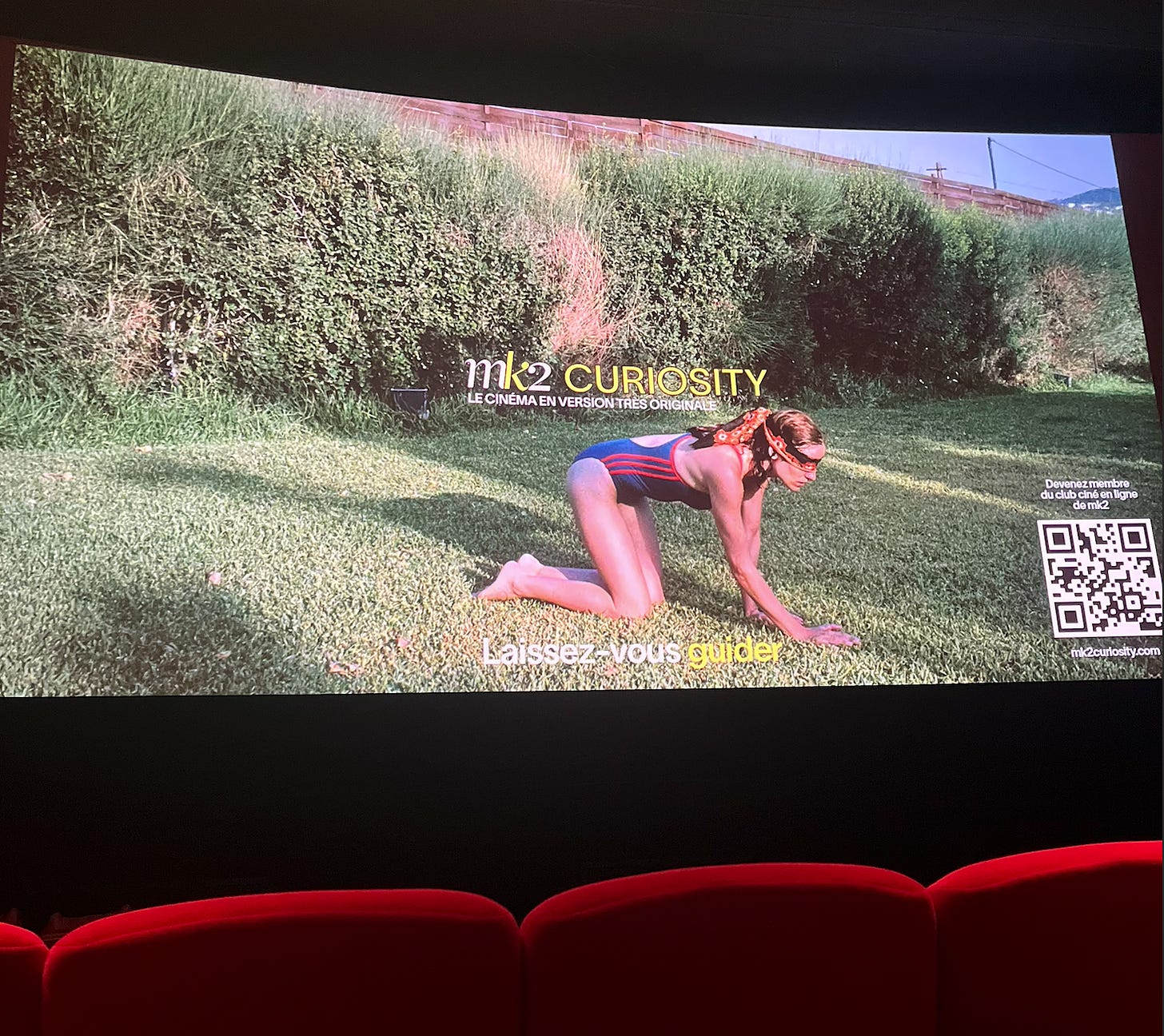

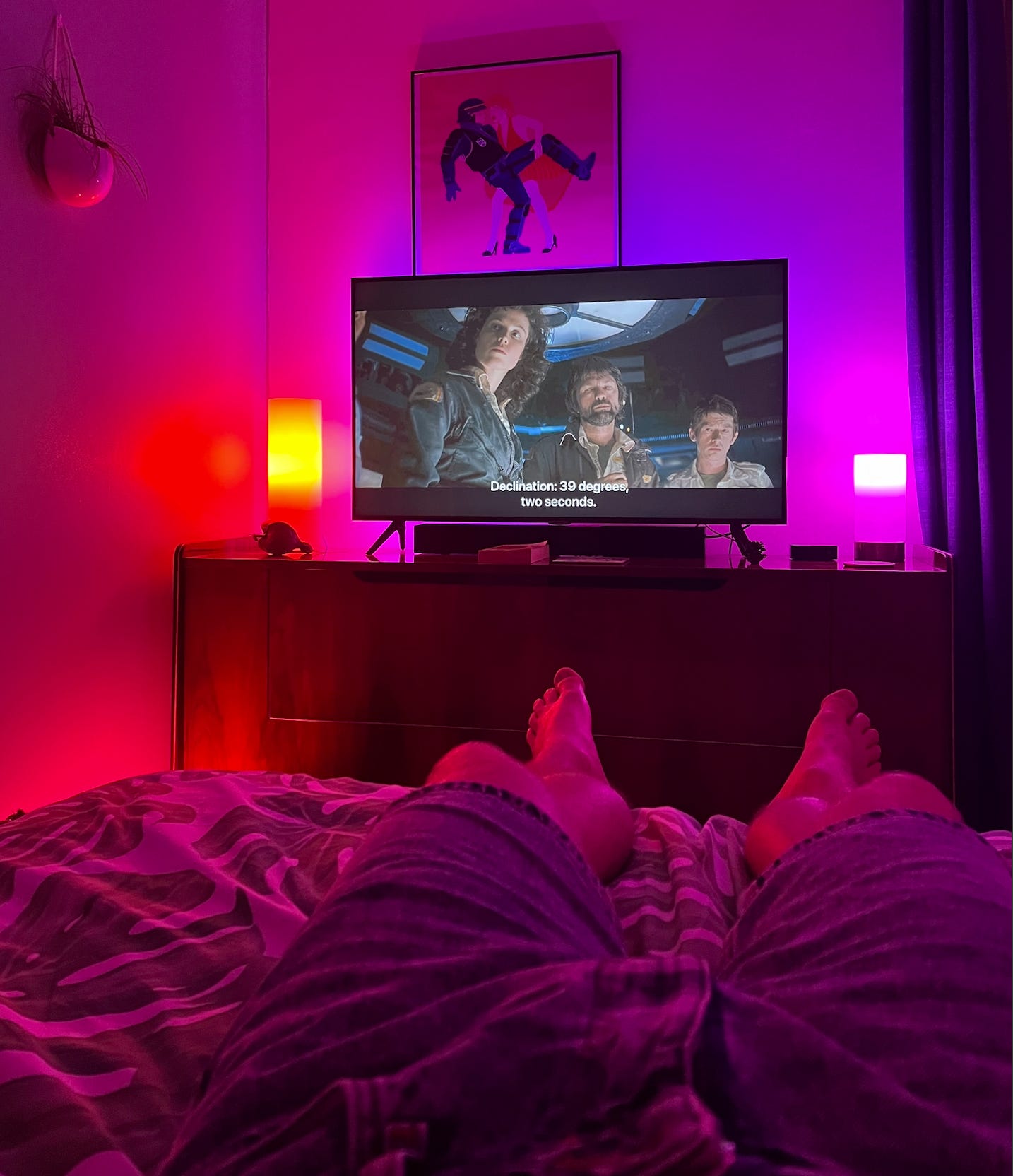

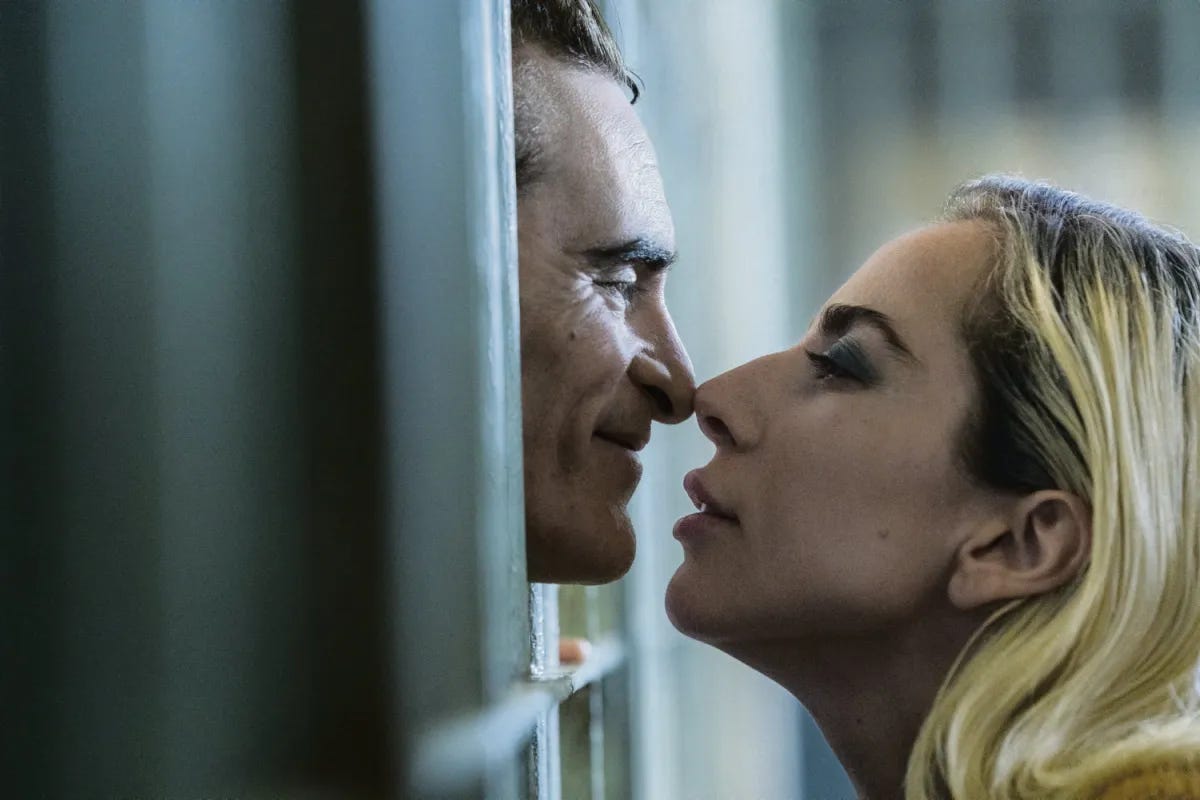

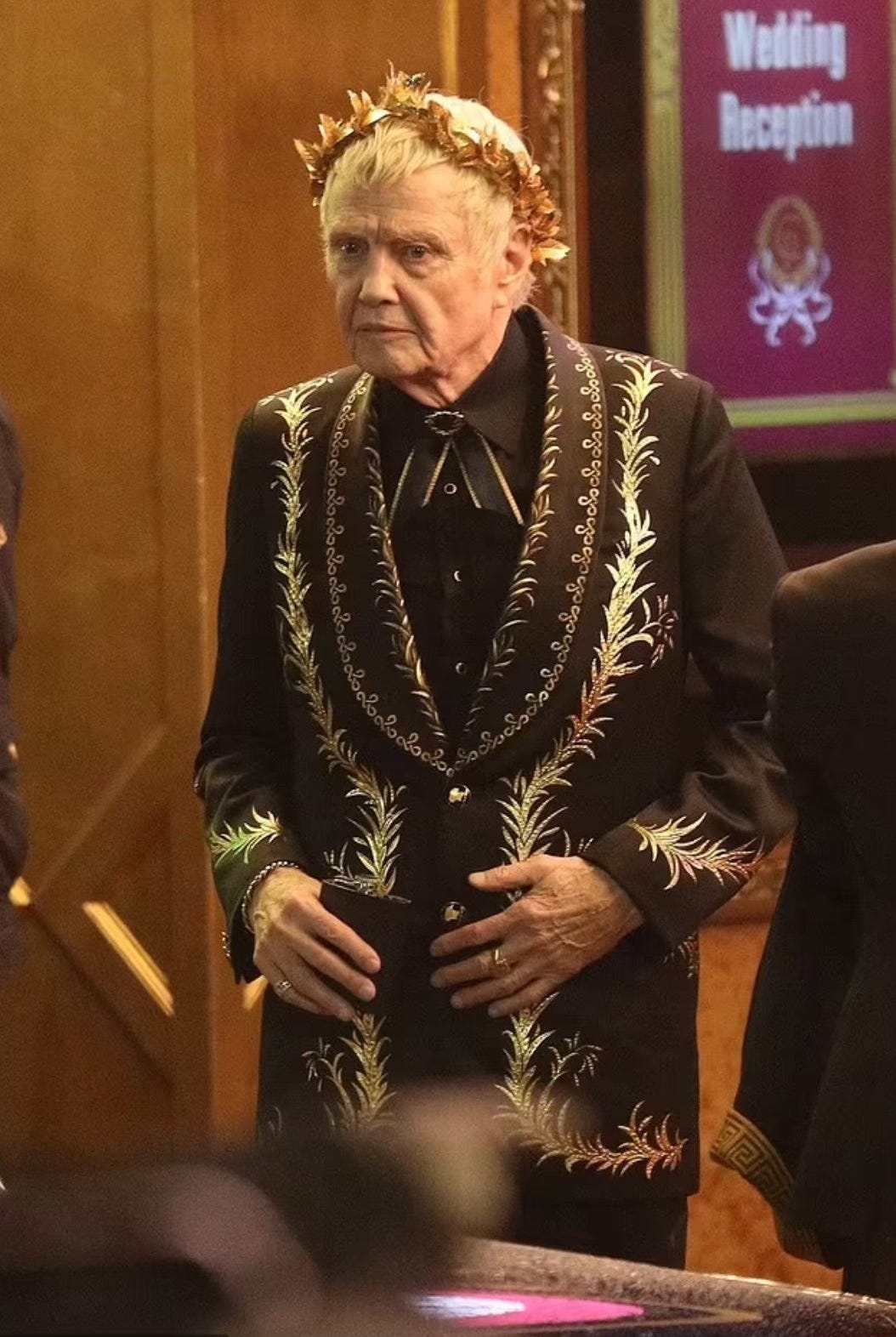
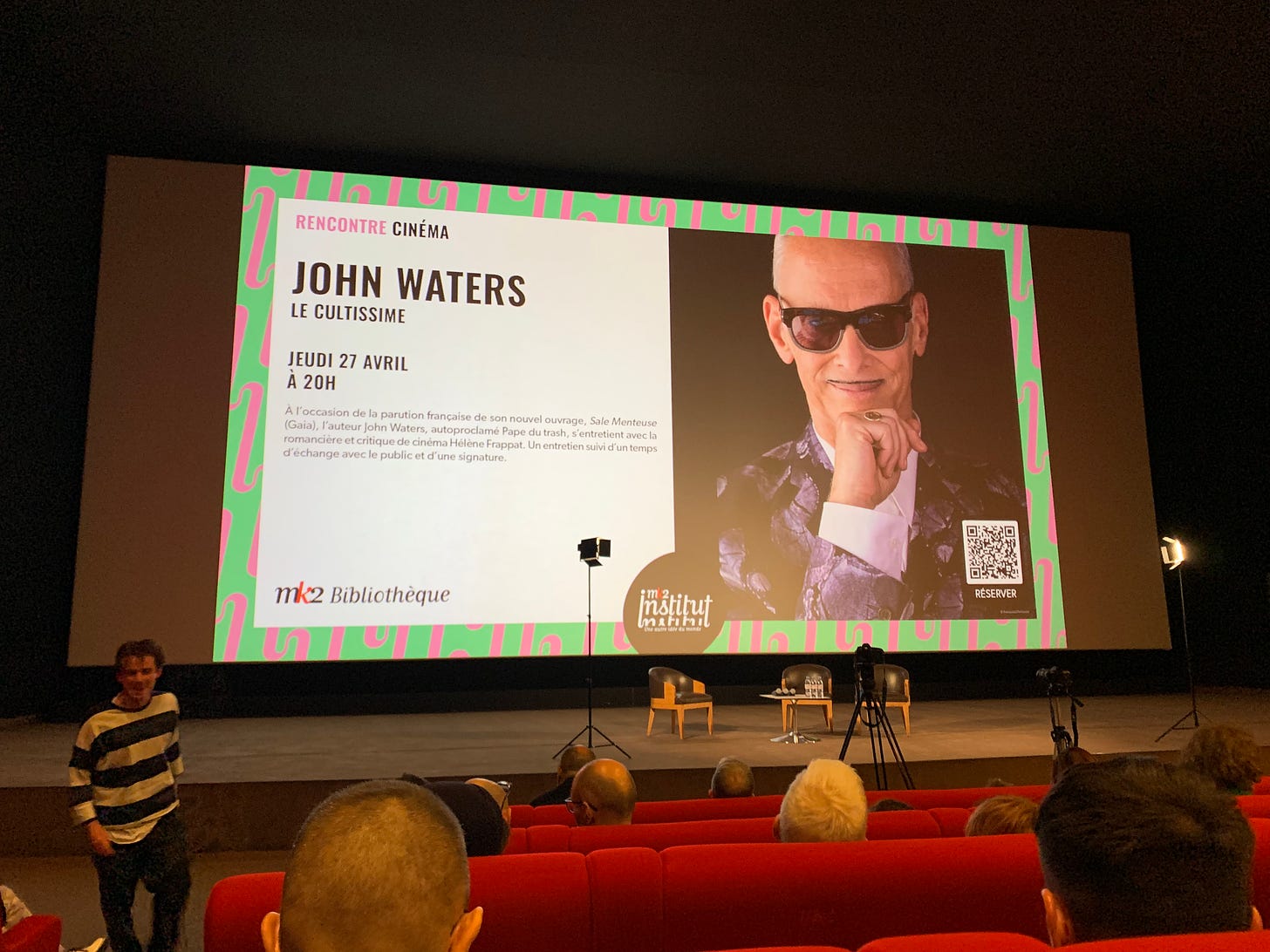


So I watched Joker 2 again last night. Despite not feeling up for such a depressing film, I wanted to catch it in cinema a second time before it disappears (which it will — very soon).
I’m glad I did because it held up magnificently to a second viewing. First time around was such an emotional rollercoaster that I missed a lot of the nuance — in what in essentially a deep-dive character drama.
Anyhow, second time around, with more detachment, I could enjoy how well written the characters and dialogue were. “Trauma informed” is the phrase that comes to mind, in that the film represents well how unhealed trauma shapes a person’s relationships — then you get two traumatised people in love with each other …. folie à deux.
---
Couldn’t resist making a few notes as I watched it, which I’ll share here. Unedited raw brain dump, written while in the cinema / SPOILERS :
Joker 2
She puts the make up on him. Everyone wants him to be the joker character in some way — and reward him for it, punish him if he doesn’t. Except for his lawyer, who wants him to be a different version of himself -- one that he doesn't relate to. She doesn't punish him for not complying, though:
The only one who is trying to act in his best interests is his lawyer.
He abandons her because he can’t understand what it is to be really cared for.
Build a mountain. How easy he is to dangle carrots in front of, how small his dreams are that he can discard them for nothing — or rather, the feeling of being loved.
She imposes that he be Joker as a condition of her love.
Does his lawyer respect who his is?
« You’re just like everyone else » …
Still a lot of anger inside. That’s who the joker allows him to connect with because he cannot as Arthur.
Everyone loves Arthur the spectacle … they can shape him to what they want. He’s a vulnerable person who lacks agency. Which is reflected in how the only time he can express himself and be recognised is when he does horrible things that are not authentically him. Or are they?
He becomes the VIP for being Joker. He gets treated better and actually seen. The only human warmth he receives from characters comes from being Joker.
He does Richard Nixon fingers for the crowd on his first Joker court appearance.
« When the villain is mean — that’s entertainment. » A line played very well by Lady Gaga outside the courthouse. Seems to be a moment of self-awareness that she is the villain.
The foreshadowing in this film is off the hook. Extremely well done. There is so much ambiguity beyond the superficial presentation … visible in colour hunting, the actors performances etc.
His lawyer is good and the insanity defence would’ve worked. It’s clear how impactful her approach is in the jury.
Gaga uses the media to usurp his lawyer … it’s her coup de grace. She’s speaking to Joker the whole time.
I know what it’s like to love somebody. But you can’t trust a word she says.
Like a conversation between a parent and a child because that’s exactly how he views love … in a childish way.
“Now look who is making it all about themselves.”
“I just wanted you to like me” = I lied to you because I love you so much.
She’s the villain of the film, and the whole plot for her is about grooming him first and then driving him away from his lawyer — the one person in the world who actually has his best interests at heart.
The lawyer is interesting because she doesn’t want to know the real Arthur. She is invested so much in the idea that he has a split personality, that she forces it upon him. She doesn’t love or see him, but she does at least have his interests in her mind. No one else does.
Arthur agrees with his old neighbour when she says that if she had called the police when she first felt he was dangerous, then those people wouldn’t have been killed. It rattles him because … he is always unseen. It’s the painful story of his life. No one ever does what they should towards him.
When his neighbour speaks about his mother, joker starts remembering how his mother’s lack of appreciation for his dreams has impacted his lire.
He can’t stand the pain of what is coming up in the trial; so he welcomes back to Joker to escape. Which is exactly what his mother said he does.
After he becomes joker, Gaga easily manages a private visit with him. Indicating that … perhaps she could have always done so, had she wanted? Had his lawyer preventing her from doing so?
There is a lot of ambiguity about her intentions.
His inappropriate behaviour is like how a child’s naughty behaviour is learned + encouraged by peers. Very juvenile and mirrors what happened to me and many children in school.
He’s properly heartbroken that puddles didn’t see Jokers television appearance. His old friend.
Everyone only sees certain parts of Arthur’s personality — they relate to only one part and hate or ignore the others.
You are tugging at my heartstrings Gary
You were the only one that was nice to me… he realises the same is true of him.
It’s interesting how much more effort she puts into building the joker myth when it is most at danger — she probably recognises how shaken he was by the Gary interview. She recognises how fragile her control is on him.
When the guards are about to rape him, he tells them jokes — not to provoke them, but as a fawning défense. He thinks if he tells them a joke, they will be nice to him. He jokes about them looking like they’re about to rape him. He knows what is coming.
Dropping the joker is a heroic thing to do.
But had things held up a bit longer — not been raped by the guards — he could’ve kept up the joker act and gotten away with it.
“I just want to start a new life” — that’s what it’s always been about.
He didn’t choose the heroic road, he was just too shattered to keep up Joker. He didn’t sacrifice himself, so much as give up.
His voice mail prevents her from killing herself. Folié à deux. She is in it for life with Joker. She doesn’t love him, but she is major committed to who she wants him to be.
His tendency to laugh when confronted to its pain is an interesting metaphoric parallel to the clown make up. A happy face disguise hiding a frown.
His dreams, in which he imagines gags shooting himself in the stomach. Or killing himself. He knows it’ll be both of them that kill him. In bjs gut, but his mind does not want to accept it.
He is such a people pleaser !!!!
(No wonder I relate to him)
Beginning foreshadows the plot so well. The shaving scene, he is so vulnerable — completely at the mercy of their good graces. He doesn’t just want the guards to like him, he needs it. He feels emotionally hurt whenever there is a moment in which he realises they don’t like him.
When he escapes from court house, his make up is there, but barely. Visual metaphor … there is still a chance he will reassume the joker — if she will be on his side.
But she won’t.
Folie à deux.
If she’s not in it anymore, he dies.
“I cannot live without you.”
The movie is full of questions about agency. To what extent Arthur actually has any agency over his own life and decisions.
How when he is stabbed, he flashes back to the fantasy he had about her killing him — because that’s how he feels has happened — and he is singing about how much he loves her and she is touched by it because she she’s how beautiful his feelings for her are.
That’s what he still wants most if all in life as he dies — to be seen and loved, even by someone who has killed him.
He people pleases for two reasons:
1. Because he wants people to give him approval
2. As a défense against dangerous people
Usually he is doing both, but sometimes it is just one.